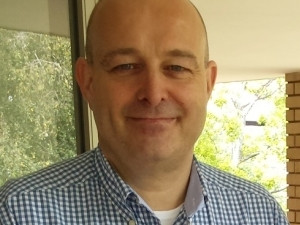
Testing has become a profession within the IT industry. Almost every company - end-user organisations as well as service providers - is employing professional testers. In fact, they would not be able to function properly without them.
This has been achieved over the past few decades, not only by the "big names" in the industry, but especially by the testers that almost anonymously worked hard in projects and were able to show their added value, time after time.
The pressure on the IT industry to "perform" - deliver the right quality at the right time within budget - also puts pressure on testing. That's why a toolbox with everything a modern tester needs is essential, says Ruud Teunissen, senior test consultant at Polteq.
The stages of testing
Testing has gone through several stages. It started as debugging: a developer runs his code and immediately resolves anything he encounters. The goal is to ensure that the code is "running". By the way, this is still a crucial activity within software development.
The first important change is when testing is introduced as a separate activity, performed by the developer. The goal is broadened to "find defects". The next step is the introduction of the tester, a person who, independent of the developer, ensures at least a second opinion and is based on the "four eyes principle".
The next stages of testing are characterised by broadening the goal of testing: to show that the software "works as specified" and that it is "fit for purpose". Also, the scope of testing broadens: not only the software but also the process is evaluated, which automatically extends the goal of testing to "preventing defects". This also implies that, although being independent is still important, close co-operation with software development is one of the keys to success.
A consequence of the above stages is the growing need for a toolbox for the testers that enables them to be successful.
The birth of TMap
The first Dutch book describing a toolbox for testers was published in 1987 and was created within the Dutch Tax Department to support prevention and resolution of the "continuous production incidents". Martin Pol was the driving force behind this project and he and his team based their approach on what was available on the international market, as well as their own experiences and Dutch common sense. This project and book are generally seen as the starting point for testing in The Netherlands.
In 1995, TMap was published in Dutch and in 1999 the second (updated and extended) version was published in Dutch and English; it incorporates all the good practices that Martin Pol, myself and Erik van Veenendaal collected together with our colleagues. ^1
In 2006, Sogeti published TMap Next in order to keep it as complete and up to date as possible. This includes developments such as the increasing importance of IT to organisations and a number of innovations in the area of system development.
Characteristics of TMap
TMap is characterised by:
1. Business-driven test management;
2. A structured approach to testing;
3. A complete toolbox; and
4. Adaptivity.
Business-driven test management directly links the (business) risks to the test approach. It enables you to use the available funds and time wisely in such a way that you deliver the results the organisation needs. The core is formed by a proven risk-based testing approach, including a flexible test process, adequate tooling and techniques.
By describing a structured yet flexible test process and providing a complete toolbox, TMap answers the classic questions: what/when, how, with what and who. TMap includes numerous good practices, examples, checklists, technique descriptions, procedures, test organisation structures and test environment/tools. Essential for a great toolbox is the fact that TMap has a flexible design so that it can be applied to almost any test in almost any context.
Key to success
The name has been chosen on purpose: Test Management approach. It is a guide that helps you discover what you need. If you need a formal process, you can find it in the toolbox. If you need an informal approach, it's in there too. And the more experienced you are and become, the better you learn and know how to use it. TMap truly turned out to be a toolbox for any organisation and tester that wants to professionalise and improve their testing.
TMap Next in South Africa
On the back of the recent partnership between Polteq and IndigoCube, the Polteq TMap Next training is provided at the IndigoCube offices in Johannesburg. The training offering comprises several courses, including two that prepare students for the internationally recognised TMap Next certifications. These certifications include TMap Next Test Engineer and the TMap Next Test Manager. For more information, contact aldo@indigocube.co.za.
^1 TMap and TMap Next are registered trademarks of Sogeti.
[1] Amongst others: "The Art of Software Testing" by Glenford Myers, published in 1978, "The Complete Guide to Software Testing" by Bill Hetzel, published in 1988, "Fagan inspections" by Michael Fagan in 1976 and "Software Engineering Economics" by Barry Boehm.
Share
IndigoCube
IndigoCube enables and improves the productivity of key business processes. It specialises in the areas of business analysis, software development, software testing and application security. The application of best practices and the development of requisite skills is core to all its solutions and it partners with some of the world's leading vendors. IndigoCube is ideally positioned to boost productivity and long-term return on investment in its focus areas. www.indigocube.co.za
Polteq
Polteq is the largest independent specialist in software testing in the Netherlands and Belgium and market leader in the area of test training. Polteq's own pioneers - Martin Pol and Ruud Teunissen, among others - have put software testing on the map. www.polteq.com
Editorial contacts